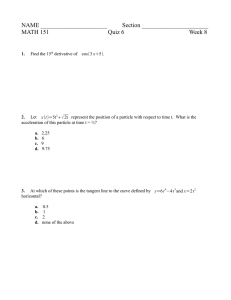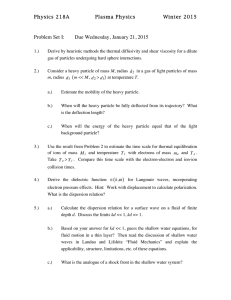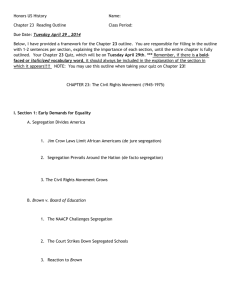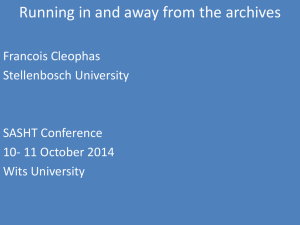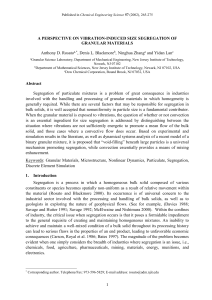Particle size segregation and spontaneous levee formation in geophysical mass flows
advertisement
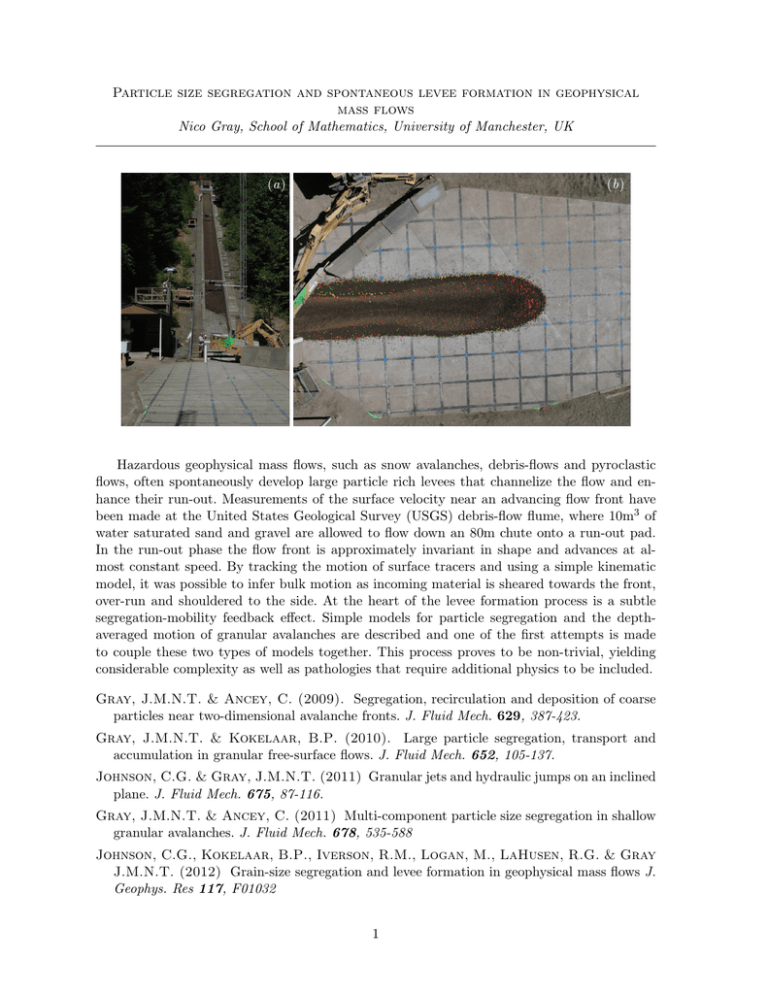
Particle size segregation and spontaneous levee formation in geophysical mass flows Nico Gray, School of Mathematics, University of Manchester, UK (a) (b) Hazardous geophysical mass flows, such as snow avalanches, debris-flows and pyroclastic flows, often spontaneously develop large particle rich levees that channelize the flow and enhance their run-out. Measurements of the surface velocity near an advancing flow front have been made at the United States Geological Survey (USGS) debris-flow flume, where 10m3 of water saturated sand and gravel are allowed to flow down an 80m chute onto a run-out pad. In the run-out phase the flow front is approximately invariant in shape and advances at almost constant speed. By tracking the motion of surface tracers and using a simple kinematic model, it was possible to infer bulk motion as incoming material is sheared towards the front, over-run and shouldered to the side. At the heart of the levee formation process is a subtle segregation-mobility feedback effect. Simple models for particle segregation and the depthaveraged motion of granular avalanches are described and one of the first attempts is made to couple these two types of models together. This process proves to be non-trivial, yielding considerable complexity as well as pathologies that require additional physics to be included. Gray, J.M.N.T. & Ancey, C. (2009). Segregation, recirculation and deposition of coarse particles near two-dimensional avalanche fronts. J. Fluid Mech. 629, 387-423. Gray, J.M.N.T. & Kokelaar, B.P. (2010). Large particle segregation, transport and accumulation in granular free-surface flows. J. Fluid Mech. 652, 105-137. Johnson, C.G. & Gray, J.M.N.T. (2011) Granular jets and hydraulic jumps on an inclined plane. J. Fluid Mech. 675, 87-116. Gray, J.M.N.T. & Ancey, C. (2011) Multi-component particle size segregation in shallow granular avalanches. J. Fluid Mech. 678, 535-588 Johnson, C.G., Kokelaar, B.P., Iverson, R.M., Logan, M., LaHusen, R.G. & Gray J.M.N.T. (2012) Grain-size segregation and levee formation in geophysical mass flows J. Geophys. Res 117, F01032 1

